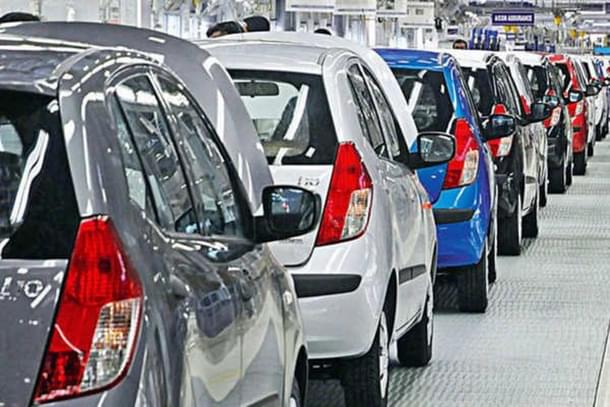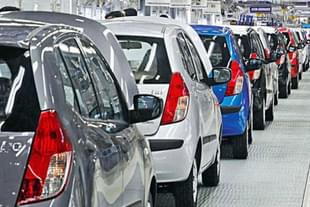Business
India's June Auto Retail Sales Grow 27 Per Cent YoY Led By Three-Wheelers, Commercial Vehicles
Swarajya Staff
Jul 05, 2022, 04:09 PM | Updated Jul 06, 2022, 01:16 PM IST
Save & read from anywhere!
Bookmark stories for easy access on any device or the Swarajya app.


Underlining an economic recovery and buoyant consumer sentiment, retail sales of India’s automobile industry increased by 27 per cent on a year-on-year basis, for the month of June 2022, as indicated by the data released by the Federation of Automobile Dealers Associations (FADA) on Tuesday (5 July).
Passenger vehicle sales increased by 40 per cent, two-wheeler sales up by 20 per cent, three-wheeler by a whopping 212 per cent, tractors by 10 per cent and commercial vehicles by 89 per cent, as per the data.
“Auto Retail for the month of June ’22 continued to show its positive run when compared with June’21, a month which continued to face the brunt of Covid,” says Vinkesh Gulati, president FADA.
Increased wholesale of automobiles reflected in the recent monthly sales figures of manufacturers have signalled an ease in semi-conductor availability thus reducing supply side constraints, increasing availability of cars and growing footfalls in showrooms, agrees Gulati.
“Waiting period, especially in compact SUV and SUV segment continued to remain high. New vehicle launches are seeing robust booking thus reflecting healthy demand pipeline,” the FADA president said, drawing attention to the three-wheeler segment where a major shift has happened in the electric category.
According to FADA, while a few categories are consistently showing recovery, a full return to the pre-Covid normal is yet to be witnessed as total vehicle retail shows a de-growth by 9 per cent when compared with June 2019 figures.
The dispatches from retail centres of PVs and tractors continued an uptick by 27 per cent and 40 per cent, respectively, over the retail sales in 2019. While for the first time, CV sales in June have risen 4 per cent over 2019, the two categories which continue to underperform are two-wheelers which de-grew by 16 per cent and three-wheelers which remain down by 6 per cent.
Overall retail dispatches of vehicles in the first quarter of fiscal 2022-23 grew by a strong 64 per cent yoy over the corresponding quarter of FY2021-22 which saw intermittent lockdowns. The near term outlook remains a matter of concern for auto retail, as per FADA projections, with inflationary pressures rising world over in the wake of the Russia-Ukraine crises and RBI Governor flagging high inflation as a major worry.
In the past few months, prices of almost all essential items have moved northwards, thereby putting pressure on the common man’s household budget and thus reducing his disposable income. Additionally, the high fuel prices have had a spillover effect on transportation and made it expensive.
This, says Gulati, will have a negative effect on entry level PVs as well as two-wheeler segment which still remains the biggest cause of concern and has not been picking as per expectation, points out Gulati, citing poor market sentiment especially in rural India, high cost of ownership and inflationary pressure as reasons for the low volumes, with June generally as a lean month due to rains keeping sales under pressure.
“If rural India stabilises, auto retail will enter festive season on a good note,” says Gulati.
On the wholesales front though, the timely arrival of monsoons has benefitted the two-wheeler industry. Honda Motorcycle and Scooter India (HMSI) reported a 65 per cent increase in sales in the domestic market at 355,560 units in June 2022 as compared with 212,453 units in the same month last year.
Atsushi Ogata, Managing Director and President of Honda Scooters and Motorcycles expects the coming months to sustain this upward trend as more customers look for two-wheeler mobility options.
Chennai based TVS Motor Company’s domestic two-wheeler sales registered growth of 33 per cent from 145,413 units in June 2021 to 193,090 units in June 2022. The domestic sales of electric two-wheeler include TVS iQube sales of 4,667 units in June 2022, growing 77 per cent over May 2022.
Also Read: Tata Motors Plans To Sell 50,000 EVs In FY23, 1 Lakh By Next Fiscal: N Chandrasekaran




